Project STOP is scaling up its mission to stop plastic waste, and support a more circular economy and a healthier environment. A new material recovery facility – one of the largest in Indonesia – is designed to collect over 3,000 tonnes of plastic by 2025.
Project STOP and Banyuwangi Regent, Ipuk Fiestiandani, today inaugurated one of Indonesia’s largest material recovery facilities in Songgon Municipality. Built in collaboration with the regional government of Banyuwangi, the facility represents a significant milestone towards establishing Indonesia’s premier regency-led circular waste management system.
The state-of-the-art facility handles both organic waste – to be processed into compost – and inorganic waste, which is sorted and transferred to the recycling industry.
The new MRF is part of its Banyuwangi Hijau expansion plan, aiming to positively impact the lives of up to 2 million individuals, across all Project STOP city and regional partnerships, create 1,000 full-time jobs and annually collect 230,000 tonnes of waste, including 25,000 tonnes of plastic.

“Plastic leakage to sea, land and air can be prevented by working closely with all stakeholders. Through the Project STOP Banyuwangi initiative, we work hand-in-hand to make tangible improvements to the health of the local environment and people… We hope this infrastructure can establish the implementation of a circular waste management system and become a benchmark to other regions in Indonesia.”
Ipuk Fiestiandani, Regent of Banyuwangi
How does Project STOP work?
The report Breaking the Plastic Wave showed that local action must be backed up by long-term change in the global plastics system.
Following the Indonesian government’s commitment in 2017 to reduce the country’s ocean plastic levels, Project STOP was developed. Co-founded by Systemiq and Borealis, it has received broad support from national and regional governments, international institutions, academia and the private sector.
In its partner-cities, teams of mainly Indonesian experts – in waste management, plastic recycling, organics management, behaviour change, and program governance – work with local government to design, implement and scale waste management systems: all households and institutions benefit from collection, and plastics are kept out of the environment. Capabilities are developed with the local actors who will ultimately run them.
“This second Project STOP Program in Banyuwangi underscores our enduring partnership with the Regency and other local government agencies, with increased impact and benefits for the local environment and population. We intend this to be a beacon for Regencies across the country and thank our funders and partners for their ongoing commitment.”
Ben Dixon,
Head of Materials and Circular Economy, Systemiq
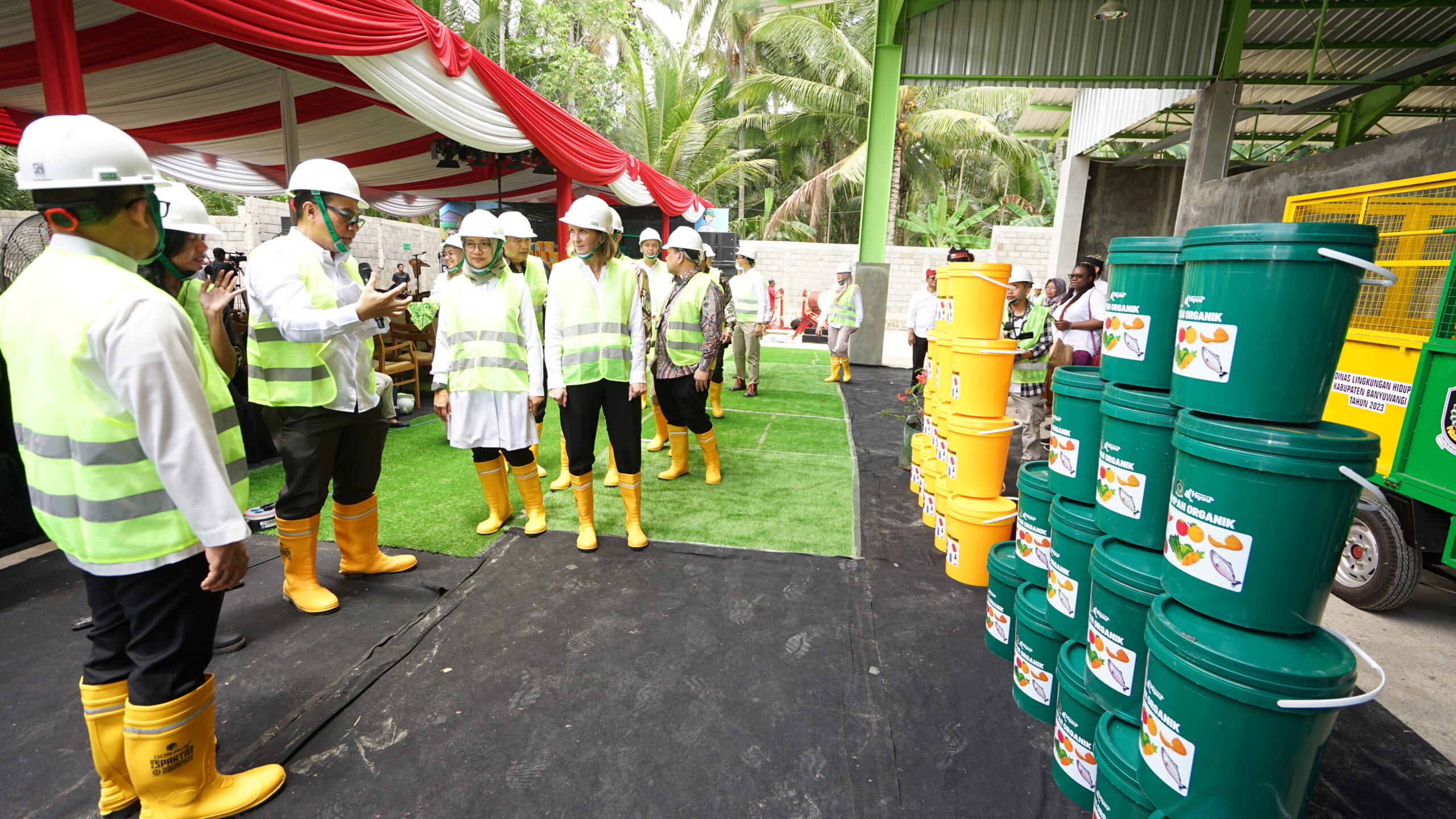
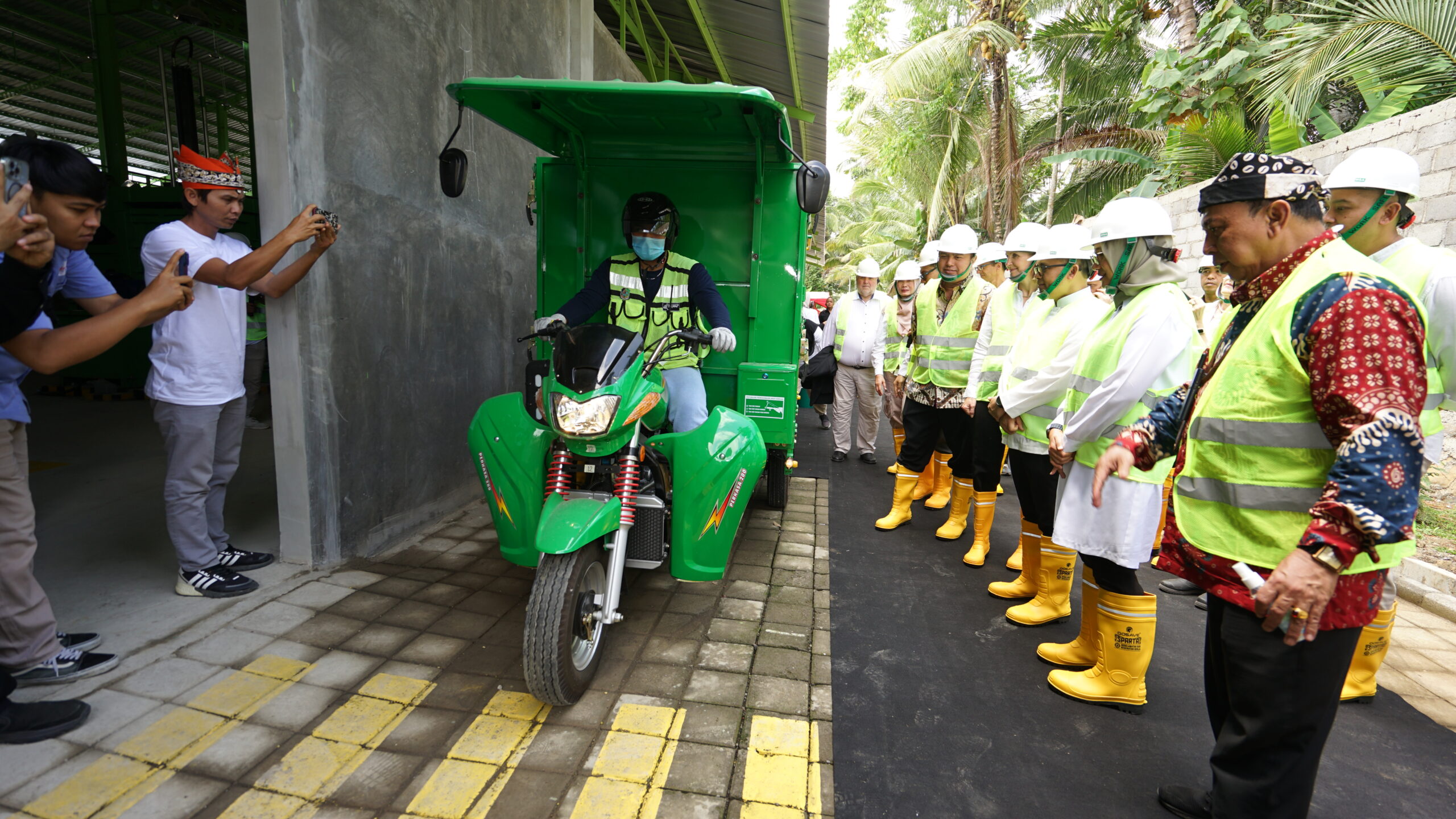
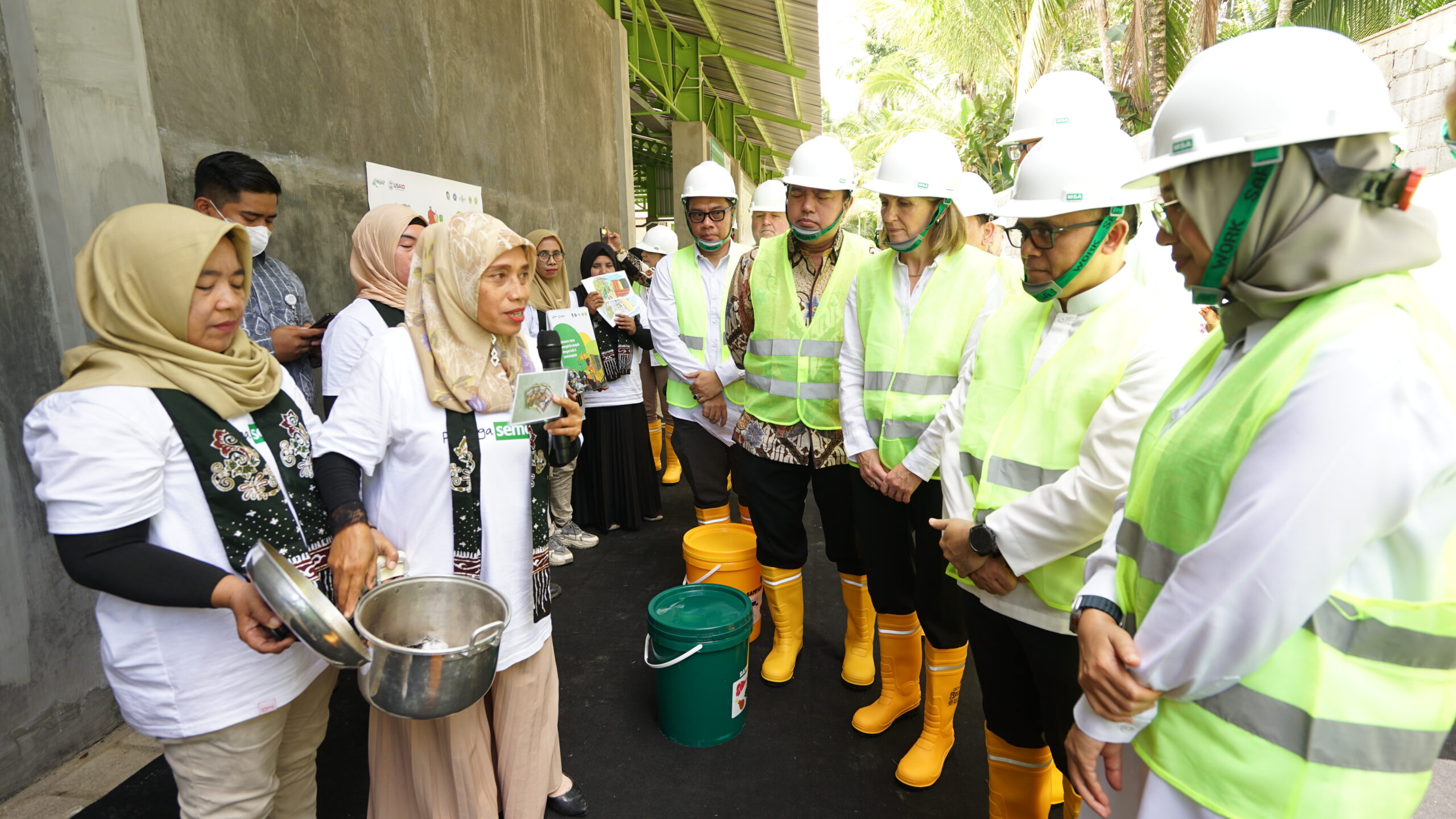
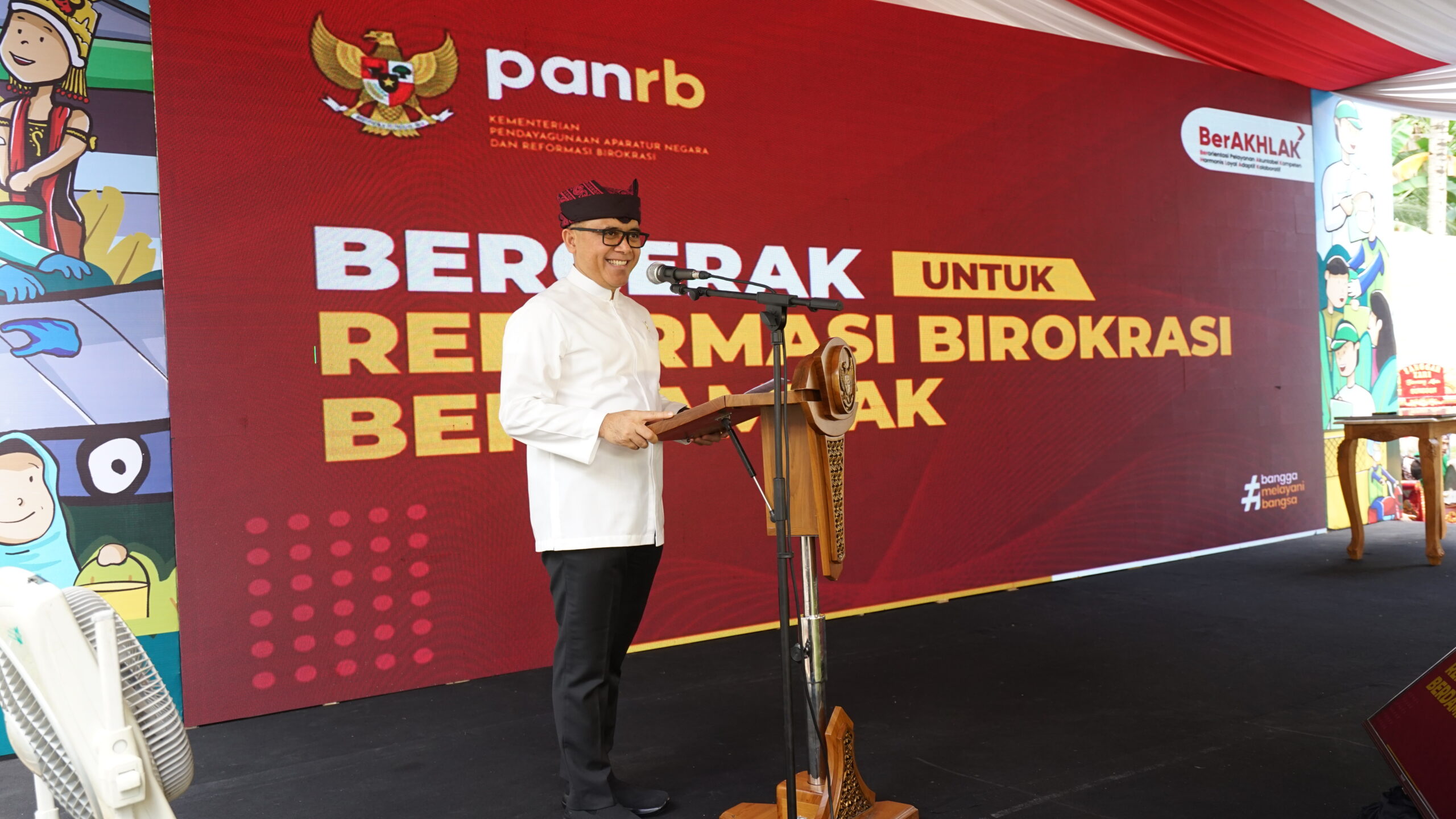
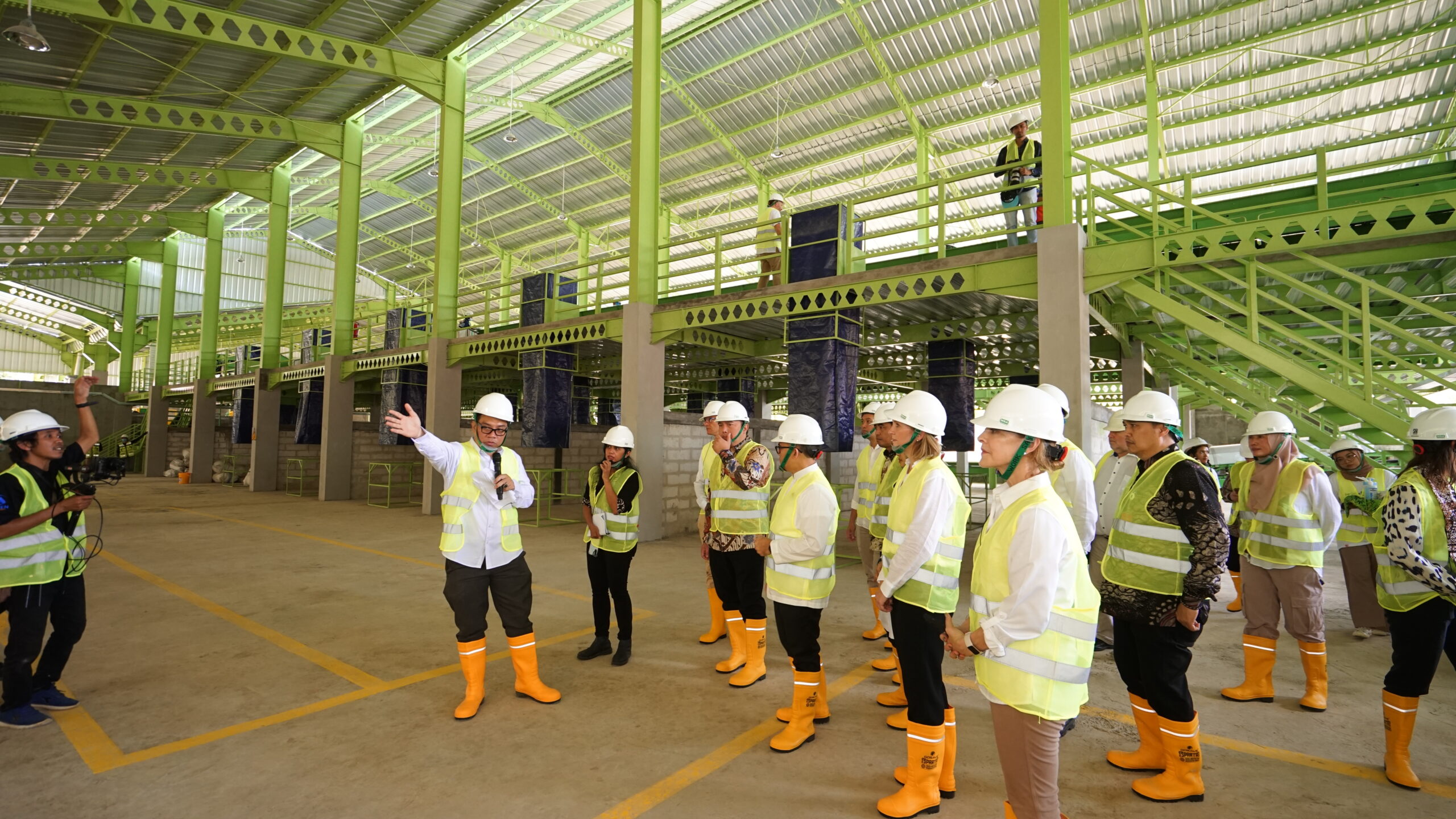
Exploring the new facility. All images (c) Project STOP

